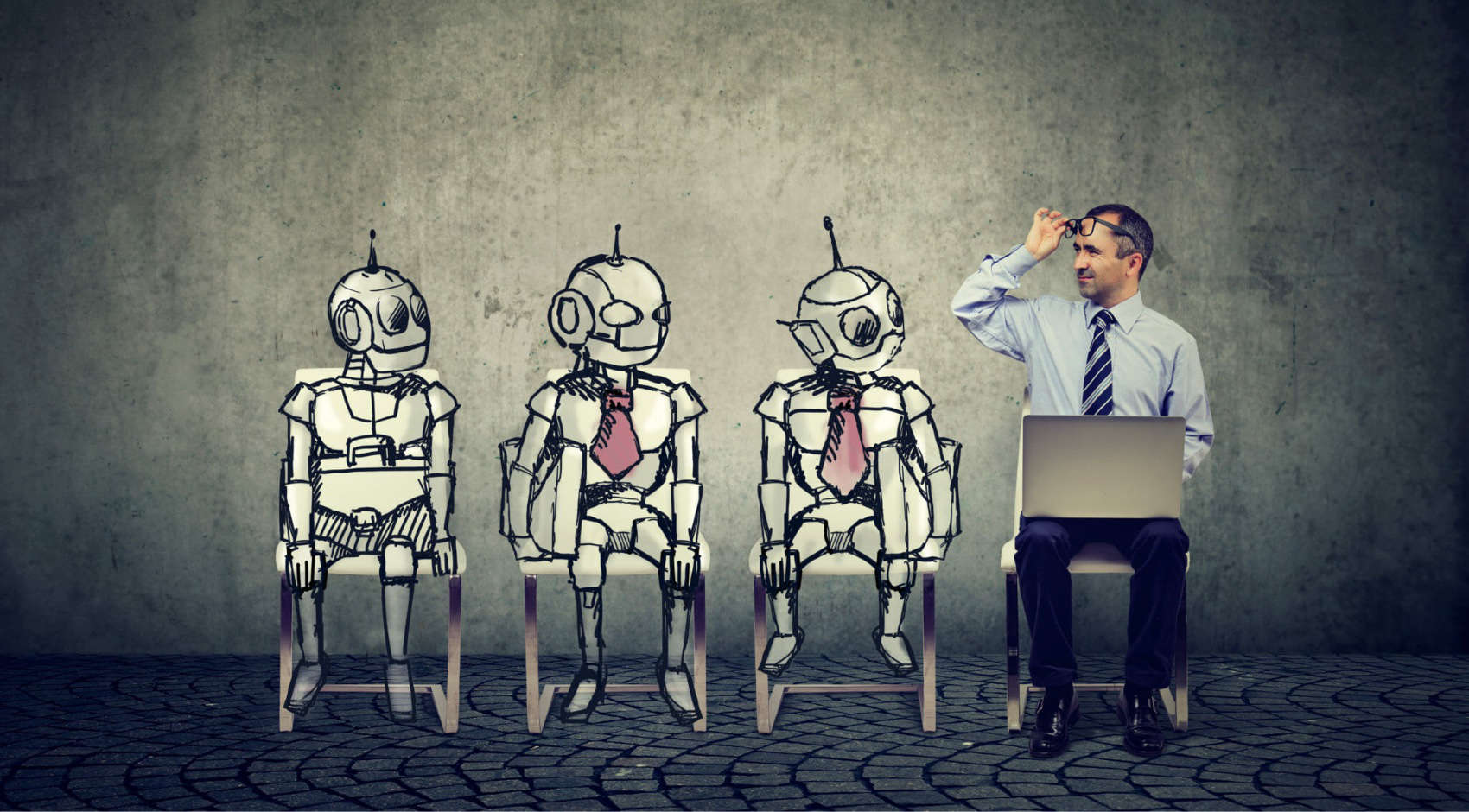Although the global economy is generally weak in 2020, sales in digital marketing continue to grow. In our new Insight we show you which trends are responsible for this growth and why you should pay special attention to AI marketing tools.
Topics in this article
- Digital marketing: Five trends for 2020
- Importance of AI for digital marketing from a manager’s perspective
- The most effective AI applications
- Where is the greatest AI potential hidden?
- Instagram & Co.: On which channels is AI used?
- What can we expect in the coming years?
During one of the worst economic crises in the world, it sounds strange to speak of opportunities. But the current situation can actually help some companies to completely rethink their business concept. The pandemic has shown that those companies that have their business focus on the digital environment are particularly crisis-proof at present. We would therefore like to show you the latest developments in digital marketing and especially in the field of artificial intelligence.
Digital marketing: Five trends for 2020
Digital marketing is one of the few sectors of the economy in 2020 which, despite the crisis, still expects considerable growth rates. According to INTERNET WORLD BUSINESS, one of the big players in the industry, Group M, is even expecting a plus of five percent this year. Several trends are responsible for this development – we will show you the five most important ones:
- Shopping Ads: The era of “platform shopping” has begun. This means that customers are no longer just shopping in the usual online shops themselves, but are already starting to shop on Instagram, Facebook or other platforms. For this purpose, the shopping ads are being equipped with more and more product details and purchase steps, so that users remain on the respective platforms as long as possible.
- Search & Voice Ads: More and more Google search queries (approx. 20%) are made by voice. This year is the first time we are experimenting with so-called Voice Ads. Companies should therefore already provide structured data for Siri and Alexa in order to be found by the speaking&hearing majority.
- B2B podcasts: In the last five years the podcast scene has experienced an extreme growth curve. Besides well-known personalities, more and more companies are positioning themselves and developing exciting B2B concepts. THE DIGITALE developed and implemented the technology-based format Telekom Netz for Telekom at the end of last year. Since then, the Telekom podcast has published over 20 episodes on the topic of network expansion.
- Employee Advocacy: People believe people rather than companies. This wisdom is not new, but it is being used more and more, with real employees being perceived as authentic brand ambassadors and sharing corporate content, for example, via their own social media profiles.
- Artificial intelligence: One of the most exciting fields is the use of AI in digital marketing. Companies all over the world have recognized this and want to spend a large part of their budget on corresponding technologies in the coming years. But what exactly is behind personalized ads and AI-supported tools?
Importance of AI for digital marketing from a manager’s perspective
A highly topical study by the industry association Bitkom, which was published at the beginning of June 2020, shows how hesitant German companies are about AI technologies in general. Although most managers see the chances of artificial intelligence as a future technology, they are reluctant to invest. Only about six percent of the companies surveyed currently use AI technologies. As many as 22 percent plan to introduce corresponding technologies this year. Last year, the readiness to use AI looked even worse.
The figures are different when it comes to digital marketing: Here, a survey (Digital Dialog Insights 2019) already showed last year that half of all experts from trade, services and production surveyed are certain that intelligent technologies will be an essential part of the marketing strategy of all companies in the future. Above all, tools and technologies in the area of personalization/individualization are considered particularly important by 89 percent. The potential of automating advertising content is also considered significant by 66 percent of those surveyed.
The situation is similar in a survey from this March 2020. 400 AI interested parties were asked about the marketing trends 2020 in the context of the virtual conference “AI for Business”. It is interesting to note that at this event, too, the trends of automation and personalization are firmly anchored in the minds of the management level – by a wide margin from other trends. But here, too, it is clear that measures such as marketing automation have only been implemented in practice by 29 percent. So there is also a lot of catching up to do in digital marketing with regard to AI technologies.

AI as support in digital marketing | © istockphoto.com / SIphotography
The most effective AI applications
AI tools are not intended to replace employees in marketing either, but to finally give marketers more time for strategic and creative tasks. Here are some tools that offer a lot of potential for the future of digital marketing:
- Intelligent language assistants: Digital assistants from Google, Apple or Amazon ensure a high level of convenience for the consumer and are therefore becoming increasingly interesting for voice ads.
- AI analysis in e-commerce: In online retailing, huge amounts of data are already being searched for patterns through artificial intelligence in order to analyze the purchasing behavior of the user and, based on this, offer him personalized advertising and an individual customer journey.
- AI analysis in advertising: AI-supported and data-based algorithms help to optimize advertising campaigns by testing several variants and interactions. In addition, AI tools can learn on which Internet sites the ads should appear and where they are irrelevant when playing out advertising content.
- Automated campaigns: Modern advertising campaigns (e.g. e-mail marketing) can be automatically controlled, evaluated and optimised for years thanks to AI technology. This is complemented by technologies such as Programmatic Advertising, where personalised ads and spots are automatically played out based on the data collected from a user.
- Chat bots: These helpful communication robots relieve employees by, for example, processing simple customer queries in customer service. In the future, chat robots will also allow for individual and more complex conversations with customers. Learn more about this topic in our Chatbots-Insight.
Where is the greatest AI potential hidden?
According to the surveys, the greatest potential for the use of AI technologies in marketing is to be found primarily in personalization and automation. AI applications can already help marketers to better understand their customers and adapt advertising and communication accordingly. Even in the course of advancing automation, artificial intelligence shows its value when it comes to automatically controlling entire work processes and performing targeted data analysis without manual assistance.
Instagram & Co.: On which channels is AI used?
Popular platforms for B2C use are well-known names like Facebook, Instagram or Pinterest. For B2B purposes, the two flagships LinkedIn and XING are interesting and will certainly be used increasingly as marketing channels in the coming years. In addition to social networks, search engines will of course continue to play a relevant role.
What can we expect in the coming years?
The technologies in the field of artificial intelligence are developing rapidly and yet the implementation – especially in the German-speaking world – is still in its infancy. This is because we are in the middle of a digital change that will take several more years. However, we are confident that companies will work even more intensively on improving their data quality in the future in order to be able to offer an adequate response to intelligent algorithms. This is because data-driven marketing will continue to gain in importance.




